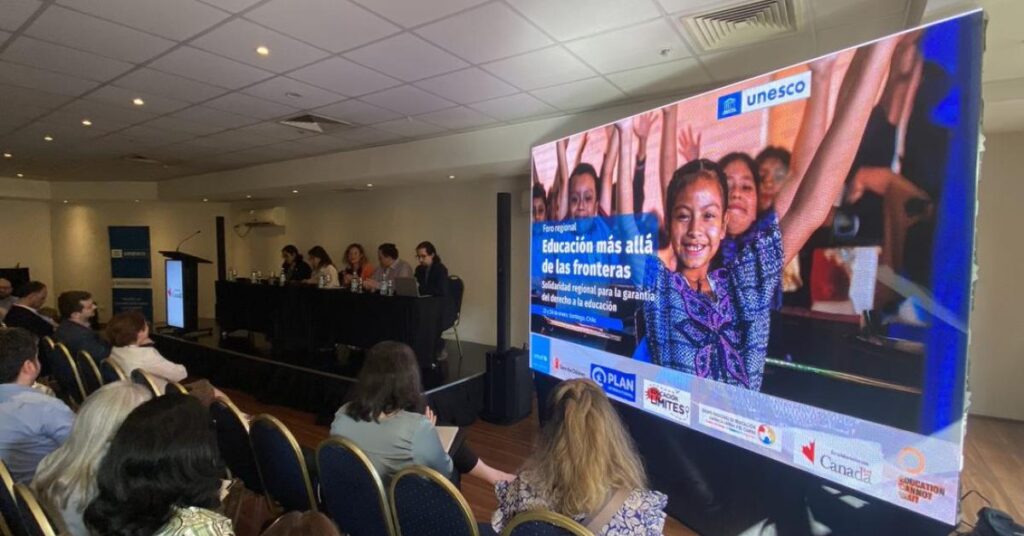The 4th Regional Forum “Transnational Education, Regional Solidarity to Guarantee the Right to Education of People in Mobile Environments”, held in Santiago on January 23 and 24, 2024, was a collaboration between UNESCO and Latin Regional Education. Organized by the group. America and the Caribbean. This event was part of Education Cannot Wait's (ECW) multi-year resilience program and was supported by the Government of Canada (GAC).
The example of regional coordination between ministries of education in Latin America and the Caribbean defined priority measures that the region should take to ensure the right to education for people in mobile situations. The results of the forum were presented at a thematic event as part of the Extraordinary Meeting of Ministers of Education of Latin America and the Caribbean – Santiago 2024.
Priority areas identified include monitoring of educational trajectories through UNESCO's Latin American Institute for Quality Evaluation of Education (LLECE), strengthening capacity at the local level, and strengthening the resilience of education systems. This includes investment in education and the positioning of education in order to evaluate the quality of education. Topics related to national and regional political agendas.
21 million people have been forced to flee their homes in Latin America and the Caribbean. In 2023, more than 500,000 of them passed through the Darién region, a swampy jungle on the border between Central and South America. This number will double the number of people who crossed the Darien River in 2022. The situation is testing response mechanisms, asylum systems and services available to migrants and host communities in Latin America and the Caribbean, said UNHCR National Director Rebecca Chenalmol Rejas. Office in Chile. Education is no exception.
“Efforts are being redoubled to reduce protection risks, with a particular focus on the most vulnerable, as it is clear that no country is in a position or capacity to respond alone. It also creates inclusive spaces and ensures stability for refugees and displaced persons in our region, including access, continuity and permanence to various education systems for children, youth and young adults.” said a UNHCR representative at the forum.
Claudia Uribe, Director of UNESCO's Multisectoral Regional Office in Santiago, said that for educational inclusion, “To transform education systems, member countries must address structural issues such as financing, inclusion policies, and inclusion policies. “We need the political will of our partners, donors, and partners.” organizational capabilities, planning, and infrastructure; ”
The forum strengthened the exchange of successful experiences for the educational inclusion of migrants, refugees and returnees. This is an essential context for national decision-making to make education systems more flexible, prepared and resilient. Countries were proposed approaches to reduce risks and build resilience, including climate change, technological threats, conflicts and pandemics that disrupt education provision.
During the event, the need for a comprehensive regional education response to address mixed migration flows within the region was highlighted. In addition, there are reflections on the conceptualization and approach of these responses, highlighting the importance of redefining key concepts, namely humanitarian, development and peacebuilding concepts, to better reflect regional realities. I did.
The forum will include national education authorities, thematic experts and experts, representatives of United Nations system agencies, the “Education Can't Wait” team, representatives of academia, and mobility-related people's organizations, youth organizations and workers. It was attended by civil society stakeholders, including: For immigrant rights.


